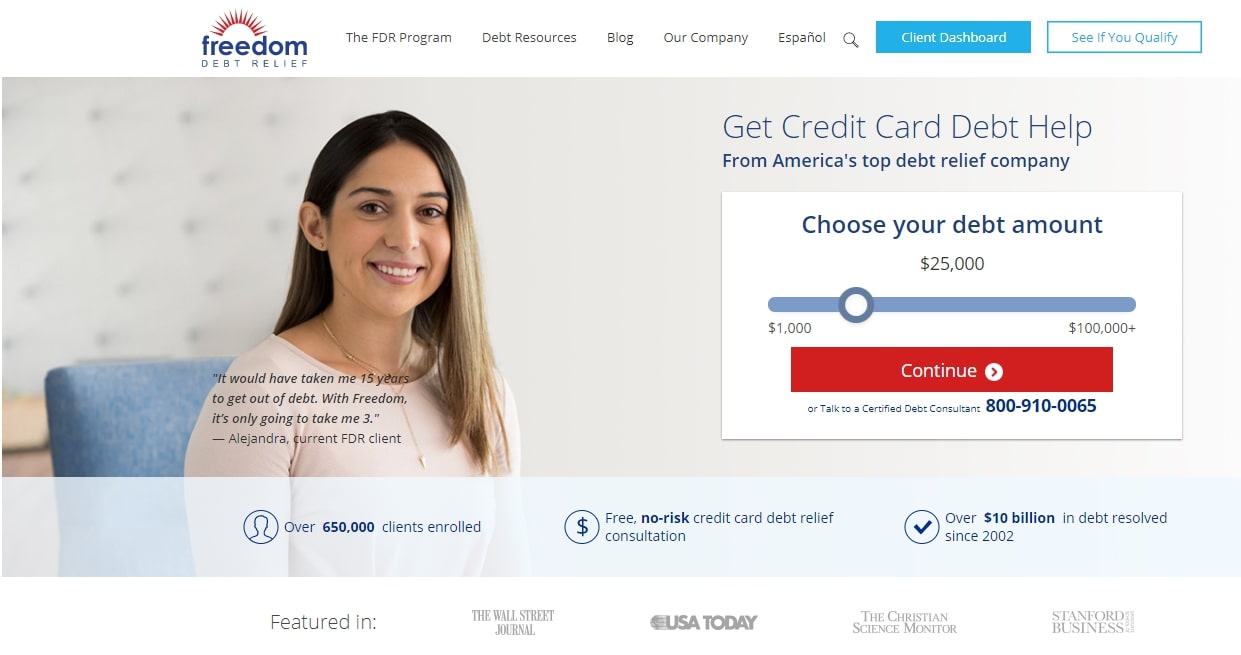


In a best case scenario, willing creditors agree to settle the debt for less than the amount owed. Debt settlement companies like ClearOne Advantage make money by charging customers a percentage of the total debt owed. The defaults must occur before the negotiation process can begin, but the debt settlement companies avoid explicitly saying this, Nguyen Orth said. According to Nguyen Orth, debt settlement companies wait until the customer has defaulted on their debts - which can sometimes take up to six months - before they begin to negotiate with creditors. The company provided what it said was testimony from a satisfied customer, but refused to provide contact information so CalMatters could interview the customer.ĭesiree Nguyen Orth, director of the Consumer Justice Clinic at the East Bay Community Law Center, explained how most debt settlement companies work.Ĭustomers who enroll in a debt settlement plan make a monthly payment to a debt settlement fund. It’s going to be so much easier.’ And I believed it,” Gomez said.ĬlearOne Advantage declined to comment on Gomez’s experience. “She made it sound easy, like ‘We’re here to help….Your life is going to change. How debt settlement worksĪfter Gomez’s first phone call with ClearOne Advantage, the debt settlement company, she said she was under the impression that the company would pay off all her debts, and that she would only need to make one monthly payment to the company until she paid off the balance. “Let’s make sure that if they are working with these companies, that there’s transparency and empowerment for the consumer in that process,” Wicks said. The bill is reviving a perennial debate in the Capitol over whether alternative financial services - like payday loans, debt settlement, and credit repair - are financial predators or a needed lifeline for Californians with little or poor credit.Īssemblymember Buffy Wicks, a Democrat from Oakland who authored the bill, contends that existing federal regulations don’t go far enough to protect Californians. Now California lawmakers are considering legislation that would more tightly regulate the industry after largely overlooking personal debt from credit cards and loans in pandemic-era legislation focused on relieving rental and utilities debt. But consumer advocates point out that these companies often prey on financial desperation and fail to warn customers of the potential consequences - like ending up in court. Among the economic winners is the booming debt settlement industry, composed largely of online companies that promise to reduce personal debt by negotiating with banks and credit card companies on the customer’s behalf.

GRACIELA GOMEZ, DEBT SETTLEMENT CUSTOMERĪs California emerges from the pandemic, some residents face crippling personal debt, even as many of the state’s richest residents have seen their wealth grow.

“I didn’t know who to talk to, who to contact. After following up, she says what she got was a lawsuit from one of her credit card companies in March. I was embarrassed,” Gomez said.Īn ad for a debt settlement company appeared on her social media feed promising to lower her debt. After losing her part-time job at Macy’s in March 2020, she had to choose between paying off her credit cards or paying her rent. For more stories on inequality in California, sign up for Inequality Insights, a weekly must-read on one of California's most pressing issues.īefore the pandemic, Graciela Gomez relied on two jobs to keep up with her expenses.


 0 kommentar(er)
0 kommentar(er)
